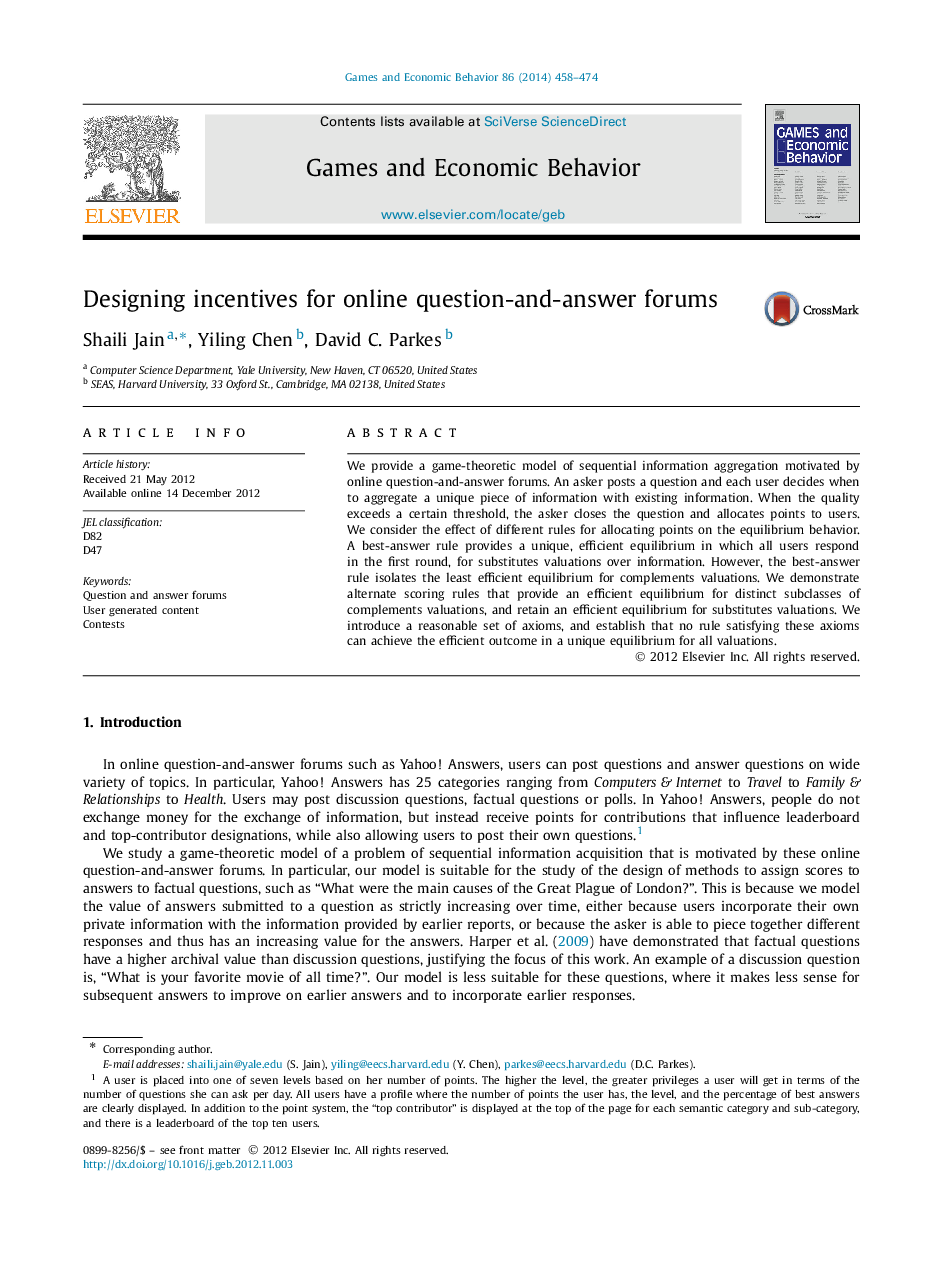| Article ID | Journal | Published Year | Pages | File Type |
|---|---|---|---|---|
| 5071719 | Games and Economic Behavior | 2014 | 17 Pages |
We provide a game-theoretic model of sequential information aggregation motivated by online question-and-answer forums. An asker posts a question and each user decides when to aggregate a unique piece of information with existing information. When the quality exceeds a certain threshold, the asker closes the question and allocates points to users. We consider the effect of different rules for allocating points on the equilibrium behavior. A best-answer rule provides a unique, efficient equilibrium in which all users respond in the first round, for substitutes valuations over information. However, the best-answer rule isolates the least efficient equilibrium for complements valuations. We demonstrate alternate scoring rules that provide an efficient equilibrium for distinct subclasses of complements valuations, and retain an efficient equilibrium for substitutes valuations. We introduce a reasonable set of axioms, and establish that no rule satisfying these axioms can achieve the efficient outcome in a unique equilibrium for all valuations.
⺠We provide a game-theoretic model of sequential information aggregation. ⺠This work is motivated by online question-and-answer forums. ⺠We consider the effect of different scoring rules on equilibrium behavior. ⺠The rules vary in equilibrium structure for complements and substitutes valuations. ⺠No scoring rule can achieve the efficient outcome for all valuations.
